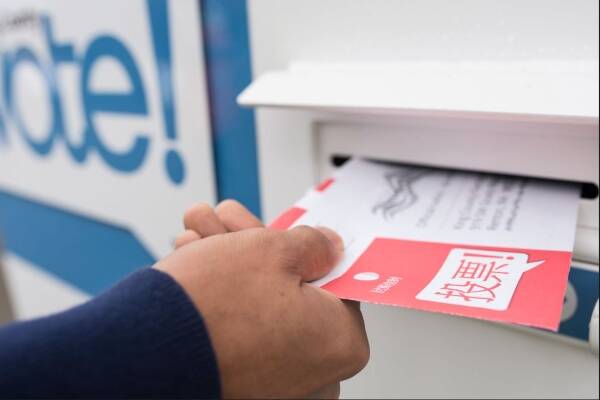Vashon Island School District’s (VISD) capital technology (CapTech) levy has passed, earning a hearty 67.8% of the island’s vote as of Feb. 16.
In the most recent ballot drop before press time, 2,463 voters had supported the Feb. 13 levy. In the count so far, 1,172 voted against it.
This levy measure will provide $1.95 million a year to Vashon Island School District to address safety, security, capital improvements and technology needs from 2025 through 2028.
On the Wednesday immediately after election night, VISD Superintendent Slade McSheehy said he was “over the moon” about the results, and “very, very grateful” for the community’s support.
“I do think we have a very strong shared commitment to providing the best education for our kids here on Vashon,” McSheehy said. “We have seen the island’s support during the year in many different ways … (and) it shows up in our election results as well.”
The levy will fund approximately 6.2% of the district’s annual budget, paying for enhanced security measures, maintenance and supply of Chromebooks and other technology, software, and technology expenses, improvements to McMurray Middle School’s restrooms and HVAC system, replacing Chautauqua Elementary’s fire alarm control panel and play structure, and the staffing of 3.6 full-time equivalent technology staff members.
The current levy will cost the owner of a $700,000 home about $238 this year. The new levy, as passed, will increase that cost to $308 in 2025, the district estimates.
Levy support, by the numbers
Of the four King County school districts that held school levies this month, Vashon’s levy has so far seen both the highest voter turnout (39.5%) and the most support.
VISD’s current CapTech levy was approved by a 73% margin in 2020, and before that, Vashon voters have regularly approved four-year CapTech levies since 2001.
In Washington state, school district levies like the one on this ballot require merely a simple majority (more than 50%) to pass. Bond issues, and non-school levies, generally require a 60% majority and a specific number of yes votes based on the previous general election to pass.
The February election will be certified on Feb. 23.


